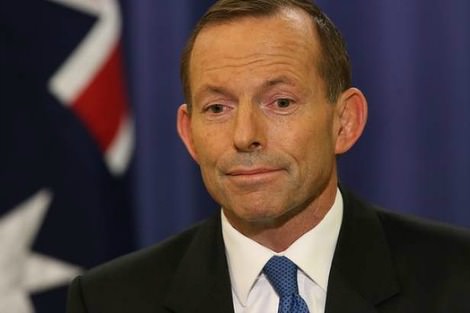Search Results: investment
There are more than 200 results, only the first 200 are displayed here.
-

AUSTRALIA
- Francine Crimmins
- 14 April 2017
15 Comments
As a millennial, I frequently find myself being told to stop complaining about housing affordability. It's all about working harder, saving more and, for goodness' sake, keeping off the avocado. As a young person, I'm concerned about using super, a system which was put aside for our economic welfare in retirement, as a savings account for instant gratification. The government is trying to solve the housing crisis not through direct action, but by encouraging young people into lifelong debt.
READ MORE 
-

ECONOMICS
- David James
- 04 April 2017
13 Comments
It is increasingly evident how pernicious the privatisation myth is. Two recent examples have underlined it: the failings in Australia's privatised energy grid and the usurious pricing in airport car parks. Both demonstrated that it is folly to expect a public benefit to inevitably emerge from private profit seeking. The purpose of government funded public infrastructure is not to make profits but to lower the cost of doing business, sometimes called the socialisation of the means of production.
READ MORE 
-

AUSTRALIA
- Ann Deslandes
- 31 March 2017
10 Comments
Australia was rated as the top destination for millionaire migrants in 2016 for the second year in a row. Meanwhile the latest Australian Institute of Health and Welfare reveal high correlations between prison entrance and indicators of entrenched poverty and discrimination. If we want our system for justice to amount to something more than a mirror of our inability to distribute wealth and opportunity evenly, we need to address the undeniable role wealth inequality has in putting people in prison.
READ MORE 
-

AUSTRALIA
- Terry Laidler
- 24 March 2017
12 Comments
Many of the kids in the juvenile justice system have been abused, come from dysfunctional families or state care, or have untreated behavioural or mental health problems. Warehousing them in punishing idleness and expecting passive compliance, let alone any recovery, is fanciful. I have begun to think about how we could respond to these kids in a holistic way, with a strong emphasis on prevention and diversion. These proposals relate to current the system in Victoria, but generalise easily.
READ MORE 
-

ECONOMICS
- David James
- 07 March 2017
17 Comments
Witnessing the debate over Sunday penalty rates, an intriguing pattern of thinking emerged. It can be characterised as a microcosm/macrocosm duality. Those arguing for lower Sunday wage rates demonstrate their case by talking about individual businesses, the micro approach: 'Many businesses would love to open on a Sunday and if wage rates were lower, they would. Unleash those businesses and greater employment will follow.' Superficially impressive, this does not survive much scrutiny.
READ MORE 
-

AUSTRALIA
- Pepi Ronalds
- 06 March 2017
3 Comments
This week marks the anniversary of the triple disaster (earthquake, tsunami and nuclear meltdown) that hit northern Japan on 11 March 2011. The event took over 18,000 lives, and initially displaced 470,000 people. Six years on, 127,000 are still without a permanent home. Delays have been caused by the sheer physical scope, pre-existing regulations and other restrictions. These are all understandable. What is less easy to accept are the disruptions caused by the 2020 Olympics in Tokyo.
READ MORE 
-

INTERNATIONAL
- Francine Crimmins
- 03 March 2017
4 Comments
An unread newspaper tumbles and breaks apart in the wind. A man sits alone on a park bench wondering what it would be like to hear children riding bicycles through the park. As darkness settles the city's workers commence their long journeys home. Not even the music of the street performers is heard anymore. They were all relocated. Car engines hum and airplanes roar. Somehow the city ecosystem continues despite the investment predators having eaten up all other types of life.
READ MORE 
-

AUSTRALIA
- Naomi Fryers
- 10 February 2017
10 Comments
In my mid-20s, I sectioned under the Mental Health Act into the public inpatient system. The experience is so etched in my mind that it wasn't until recently, half a decade on, that I finally managed to shake the residual anxiety. A single admission to the public mental health system saw me crippled by Post Traumatic Stress Disorder. By contrast, I've never had an inpatient admission to a private psychiatric hospital where I haven't been discharged in comparative good health.
READ MORE 
-

ECONOMICS
- David James
- 07 February 2017
10 Comments
Many defenders of globalisation express frustration at the rise of Trump and what they see as an ignorant and self-defeating backlash against its virtues. But they have no answer to the most pressing question: Is the global system there to serve people, or are people there to serve the global system? They also never address a central contradiction of globalisation: that capital is free to move, but for the most part people are not, unless they belong to the elite ranks.
READ MORE 
-

ENVIRONMENT
- Greg Foyster
- 02 February 2017
10 Comments
If climate change were a short-term problem, polarisation wouldn't be so crippling. One side could push a solution through parliament, and by the time the other side took power it might be a non-issue. But climate change is an extraordinarily long-term problem that requires massive investment in new infrastructure and consistent policy settings over decades. It needs a supermajority of support so years of work isn't undone with each change of government. That means getting conservatives on board.
READ MORE 
-

AUSTRALIA
- Mark Hearn
- 31 January 2017
6 Comments
2016 was a bumper year for the political double down. Journalist Mark Kenny witnessed a dramatic manifestation: 'Mr Abbott was seen to double down on his recent indirect messaging to Mr Turnbull about a possible return to the frontbench.' A combined 'double down with indirect messaging': perhaps a uniquely Abbott adaptation. Doubling down - otherwise known as repeating yourself - is the public language of aggressive redundancy, drowning out alternative voices and ideas.
READ MORE 
-

AUSTRALIA
- Ann Deslandes
- 20 January 2017
12 Comments
Like all authorised generalisations, this luminous, unified vision of Australia contains truth, exaggerations, and lies. As well as being a globally known story, it's also the story Australia most likes to tell itself; it sings through ideas like the lucky country, the land of the fair go, the land of the long weekend. Social research on Australia tells a more complex story. Australia is in fact an ethnocracy - a state that is formed in the image and for the benefit of a dominant ethnic group.
READ MORE 